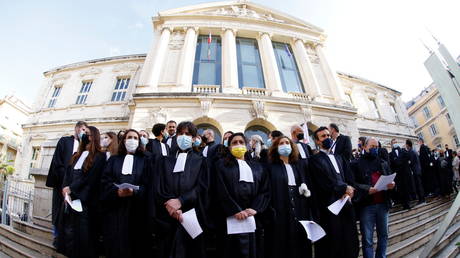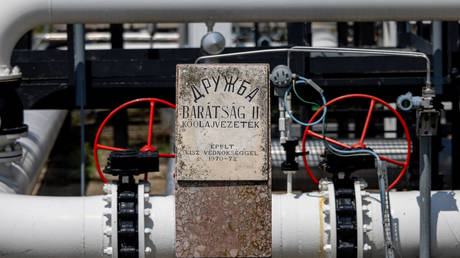
French magistrates and public sector legal professionals went on strike on Wednesday, demanding more funding and better working conditions.
Magistrates, lawyers, and court clerks staged rallies outside courthouses in Paris and other cities in France, demanding “dignified” conditions for work and the postponement of hearings.
The protests on Wednesday were announced by 17 trade unions, who called for a “general mobilization for justice.” The strike was supported by the Court of Cessation, the highest court in the county’s judicial system, which said it “could not remain silent at a time when despair affects those who try, sometimes at the cost of sacrifice or tragedy, to carry out justice.”
According to French media, lawyers have been complaining about feeling overworked and depressed when going through rushed hearings in underfunded and understaffed courts. It was reported that, in some cases, magistrates were pressured to conclude hearings without proper due diligence and follow-up, and were even instructed to rule on divorce cases “in 15 minutes,” without giving the floor to the parties involved.
In an open letter published in Le Monde on November 23, several magistrates talked about attending the funeral of their 29-year-old colleague who took her own life in August. The young lawyer was pressured to work “faster and faster,” but refused to “make priority of quantity over quality.”
“Like many, she worked on most of her weekends and during vacations, but that was not enough,” the letter read. The appeal, initially signed by 3,000 magistrates, received more than 7,550 signatures by legal professionals by this week, according to France Info radio.
Claire Dujardin, the president of the French Lawyers’ Union, told the radio station that current conditions place legal professionals in an “untenable dilemma: to make decisions quickly but poorly, or to take the time to make them properly but with unacceptable delays.”
Dujardin added that France’s judicial budget ranks 14th of the EU’s 27 member states. The country should double the number of magistrates and clerks, she said.




